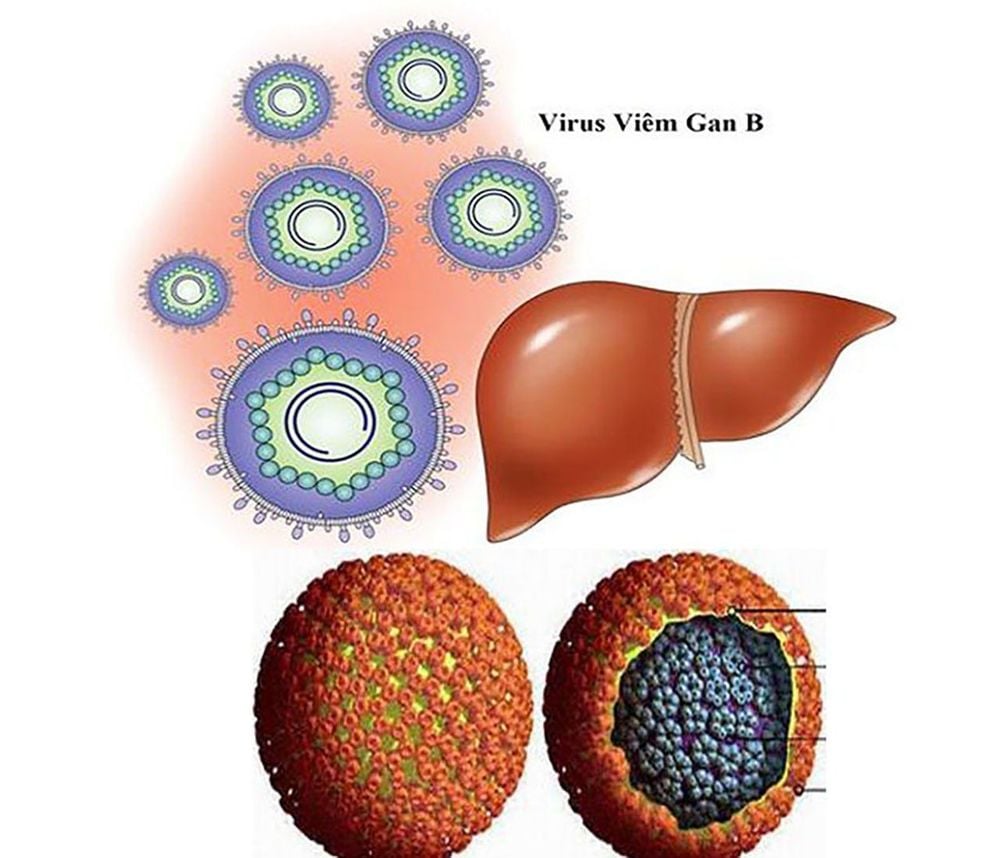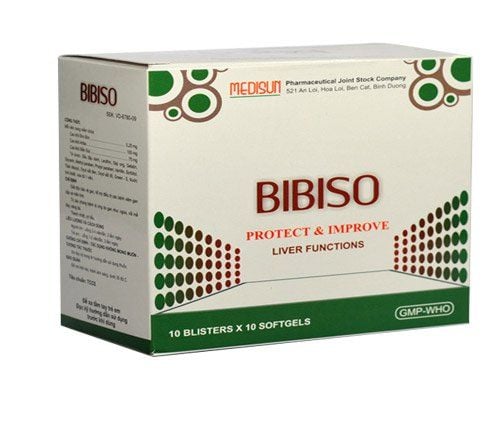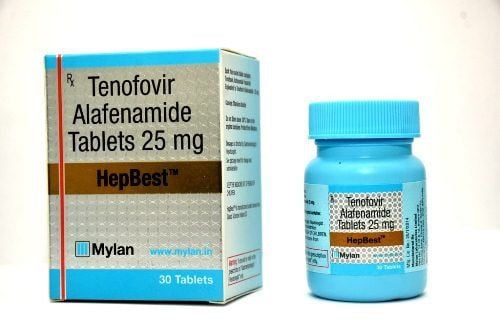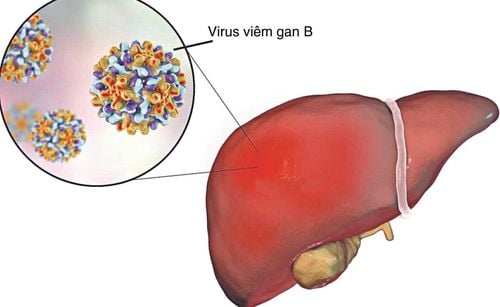This is an automatically translated article.
The article is professionally consulted by Master, Specialist II Phan Thi Minh Huong - Gastroenterologist - Department of Medical Examination & Internal Medicine - Vinmec Danang International General HospitalThe proportion of patients with hepatitis is increasing in recent years despite the availability of a preventive vaccine. Hepatitis often progresses silently but can lead to many dangerous complications, even death. So why is hepatitis a silent killer?
1. What is hepatitis?
Hepatitis is an inflammation of the liver cells. If left untreated, the disease can progress to cirrhosis or liver cancer, eventually leading to death. Therefore, it can be said that hepatitis is a silent killer.There are many different causes of hepatitis, but the most common is viral hepatitis. Besides, there are other causes such as bacterial infection, toxic chemicals such as alcohol, some drugs... as well as autoimmune diseases.
Currently there are all 5 different viruses that can cause hepatitis A, B, C or D and E. In which, hepatitis is caused by hepatitis B and C viruses that can turn chronic, easily leading to cirrhosis liver or liver cancer. A patient can have only one virus or at the same time have hepatitis caused by both types B and C.
1.1. Features of hepatitis B virus Hepatitis B transmission route includes direct contact with blood or bodily fluids of an infected person, infection through unprotected sex, and mother-to-child transmission. to the child during the perinatal period. In addition, hepatitis B is also transmitted if an infected patient shares needles, razors, and toothbrushes with an infected person. The virus does not travel to transmit the disease through breast milk, inhalation or gastrointestinal tract. The time from infection with the virus to the onset of symptoms (incubation period) of hepatitis B is 120 days on average and can range from 45 to 160 days. Only about 15-25% of people with hepatitis B become chronic and lead to liver damage, cirrhosis or liver cancer. The remaining patients are able to clear the virus out of the body on their own

Hình ảnh virus tuýp B gây bệnh viêm gan B
1.2. Characteristics of hepatitis caused by the hepatitis C virus. The route of transmission is similar to that of hepatitis B, which is through blood, sexual contact, or mother-to-child transmission. The incubation period for hepatitis C is shorter, on average. about 45 days and ranges from 14 - 180 days The rate of developing chronic disease of hepatitis C virus is higher. Up to 75 - 85% of people infected with hepatitis C will become chronic, damage liver cells and lead to cirrhosis or liver cancer. It is a fact that the majority (about 50%) of people with hepatitis C do not know they have the disease, so they do not receive timely treatment. According to statistics, about 5 - 20% of people with hepatitis C develop cirrhosis and up to 1 - 5% die from cirrhosis or liver cancer. These are the reasons to claim hepatitis is a silent killer.
2. What are the symptoms of hepatitis?
Almost all types of hepatitis have similar symptoms, regardless of the cause. Those signs include:Fever. Joint pain. Fatigue, feeling unwell. Digestive disturbances such as nausea, vomiting, loss of appetite. Stomachache. Cholestasis syndrome such as pale stools, dark urine. Jaundice syndrome, yellow eyes. The patient's initial signs may be nonspecific or obvious. Therefore, patients often do not pay attention and are not diagnosed in time. Hepatitis was discovered incidentally through routine physical examination with abnormal blood tests.

Viêm gan gây cho người bệnh triệu chứng đau bụng kèm theo một số triệu chứng khác
3. Why is hepatitis a silent killer?
The liver is a large organ that undertakes many different tasks in the physiological processes of the human body. However, most cases of hepatitis B or C have very unclear manifestations and the symptoms are not commensurate with the severity.It is these reasons that have caused many difficulties for the examination, accurate diagnosis and timely treatment in the mild stage. Most patients are only detected and diagnosed at a late stage, when symptoms appear severe due to damaged liver cells in the setting of cirrhosis or liver cancer. So it can be said that hepatitis is a silent killer.
If diagnosed early, the patient's prognosis is very good, and the treatment cost is not too high. However, if the disease has progressed to cirrhosis or liver cancer, the patient's probability of death is very high, the treatment costs are expensive, and the patient's health is also greatly weakened.
A few cases of patients, even though they have been diagnosed, due to subjective psychology because they do not have many symptoms, do not adhere to treatment, do not follow up and follow up with the doctor's appointment, resulting in disease. more severe progression.
The current situation of viral hepatitis in our country is also relatively high. According to statistics, there are about 10-20 million people infected with hepatitis B virus and about 5 million people infected with hepatitis C virus.
Most of the people have no symptoms, so the most important thing is to screen and screen these subjects to have the disease. timely treatment measures as well as prevention of infection to others.
4. The cost of hepatitis treatment is quite high
One major burden of viral hepatitis is the cost of treatment. Previously, the cost of drugs to treat hepatitis C alone was about 100-120 million VND per year (including injections and oral drugs), now the new generation of hepatitis C drugs has shortened the time taken to treat hepatitis C. treatment and costs. Hepatitis B is 2-3 million per month, and patients with hepatitis B are mostly on medication for life.
Người mắc viêm gan do siêu vi cần được thăm khám định kỳ theo chỉ định của bác sĩ chuyên khoa
5. Effective hepatitis prevention measures
Hepatitis B and C are the main causes of cirrhosis or liver cancer - the death stage of liver disease. In order to effectively prevent the disease, we need to know the exact transmission route of these two dangerous viruses and take appropriate measures. Specifically, there are 3 main routes of transmission: direct contact with the blood or secretions of an infected person, unsafe sex, and mother-to-child transmission. Effective disease prevention measures include:Make sure not to come into contact with fluids and blood of sick people. When necessary, wear gloves. Safe sex, use condoms when having sex. Adhere to monogamy, do not have sex with many different people at the same time. Vaccinate against hepatitis B virus. There is no vaccine for hepatitis C. Accordingly, it is extremely important to check and screen for diseases before planning to have a baby to avoid being born with this disease because hepatitis is a silent killer.
Please dial HOTLINE for more information or register for an appointment HERE. Download MyVinmec app to make appointments faster and to manage your bookings easily.













